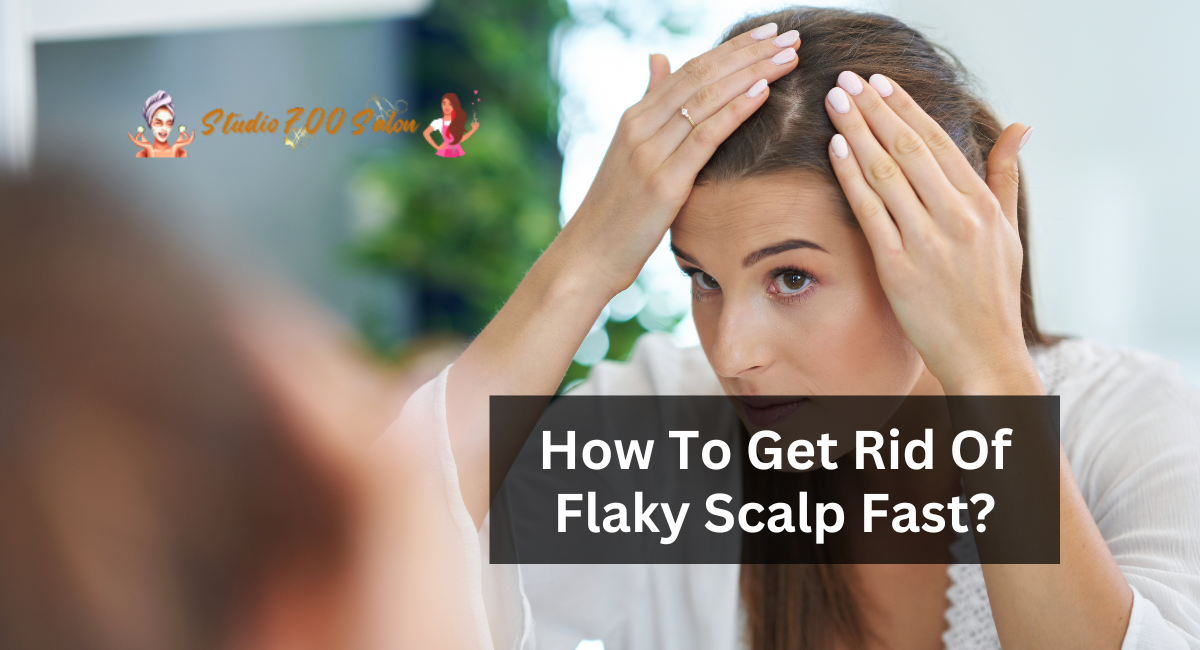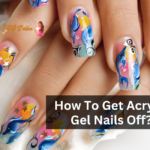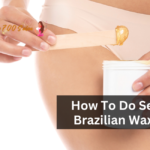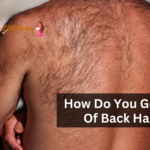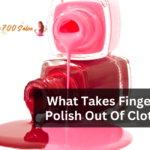A flaky scalp can be painful as well as embarrassing. Those irritating white flakes on your shoulders can be quite bothersome.
But don’t worry! In this article, we’ll look at easy techniques to get rid of a flaky scalp so you can have healthy, dandruff-free hair again.
How To Get Rid Of Flaky Scalp Fast?
A flaky scalp can be pretty annoying, but you can do a few things to get rid of it quickly and efficiently. The following is a step-by-step procedure that will help you get a flakes-free scalp:
1. Choose The Right Shampoo
Choose A Shampoo That Can Treat Dandruff: Look for a shampoo that is formulated specifically to treat dandruff and flakes on the scalp. In order to effectively cure flaky scalps, using ingredients such as ketoconazole, zinc pyrithione, or selenium sulfide is recommended. Be sure to read the product label for instructions on how to use the product.
2. Adjust Your Washing Routine
Reduce the number of times you wash your hair washing your hair more frequently than necessary will rob it of its natural oils, causing your scalp to become dry. If it’s at all possible, you should try washing your hair every other day or even less frequently than that.
Use Lukewarm Water: Using hot water will make your scalp even drier. When you wash your hair, your scalp should be washed with lukewarm water, not hot or cold.
Gentle Massage: While shampooing, use your fingertips to gently massage your scalp circularly. This will thoroughly clean your scalp without creating any irritation.
3. Incorporate Scalp Treatments
Masks For The Scalp: Once a week, or as directed on the product’s packaging, apply a scalp mask that is either hydrating or combats dandruff. These treatments can help calm and moisturize your scalp, which is important for healthy hair.
Essential Oils: Certain essential oils, like jojoba oil, tea tree oil, and coconut oil, all have anti-inflammatory characteristics that can help reduce flakiness. After blending a few drops of essential oil with a carrier oil, massage the mixture into your scalp.
Apple Cider Vinegar (ACV) Rinse: Apple cider vinegar should be diluted with water at a ratio of one part ACV to three parts water before being used as a final rinse after shampooing. The pH of your scalp can be brought back into equilibrium using apple cider vinegar, which also helps reduce flakiness.
4. Maintain A Healthy Diet
Omega-3 Fatty Acids: Include omega-3 fatty acid-rich foods in your diet, such as fatty fish (salmon, mackerel), flaxseeds, walnuts, and chia seeds. Walnuts are another food high in omega-3 fatty acids. These nutrients are beneficial to the scalp’s health. l oil in conjunction with a carrier oil.
Biotin-Rich Foods: Biotin, commonly known as vitamin B7, is essential to maintaining healthy hair and a healthy scalp. Avocados, eggs, nuts, and whole grains are some of the best food sources of the vitamin biotin.
Stay Hydrated: Maintaining proper hydration requires you to consume adequate water daily to keep your skin and scalp hydrated from the inside out.
5. Stress Management
Practice Stress-Reduction Techniques: Stress can make problems of the scalp worse. Do things that help you feel less stressed, like meditation, yoga, deep breathing exercises, or a lot of physical movement.
Adequate Sleep: You should make sure you get enough restful sleep every night because not getting enough sleep can add to your stress and make hair problems worse.
6. Avoid Harsh Hair Products
Check Hair Products: The use of certain hair products, such as gels, hairsprays, and mousses, can lead to a buildup of product on the scalp, which in turn causes flakes. Select hair products that have a lower propensity to lead to buildup on the hair.
7. Consult A Dermatologist
If your flaky scalp does not improve despite the use of the aforementioned home treatments and over-the-counter items, it is recommended that you speak with a dermatologist.
They are able to provide a professional diagnostic and make recommendations for treatments or shampoos that are medicated and prescription-strength that are suited to your particular scalp issue.
Understanding The Flaky Scalp And Its Causes
A flaky scalp frequently causes the scalp to shed small, white, or grayish flakes. These flakes are frequently noticeable on the hair, clothing, and, in some cases, the shoulders.
Itching, dryness, and irritation can accompany flaky scalp. This disorder is known medically as “dandruff.”
Several factors can contribute to a flaky scalp:
Dry Skin: Dry skin on the scalp is one of the most typical causes. Dry skin can affect the scalp in the same way that it can affect other regions of the body, resulting in flakiness.
Dandruff: Dandruff is frequently caused by an overgrowth of a yeast-like fungus on the scalp called Malassezia. This overgrowth can result in higher skin cell turnover, which causes flakes.
Psoriasis: Psoriasis is a chronic skin condition that primarily affects the scalp. It causes a rapid buildup of skin cells, which might result in scales and flakes.
Eczema (Seborrheic Dermatitis): Eczema, particularly seborrheic dermatitis, can cause flakiness, redness, and itching on the scalp.
Product Buildup: The usage of hair care products such as gels, hair sprays, or style products can cause flakes on the scalp.
Excessive Washing: Excessive bathing or the use of harsh shampoos can deplete the scalp of its natural oils, resulting in dryness and flakiness.
Stress: Stress can aggravate a variety of skin issues, including dandruff and flaky scalp.
A flaky scalp does not have to be a constant source of irritation. You may effectively get rid of flakiness and restore your scalp’s health by knowing the causes and adopting these methods. Remember that consistency is essential, and if the condition persists, see a dermatologist for specialized advice.
Thanks for reading. I hope you find it helpful.
